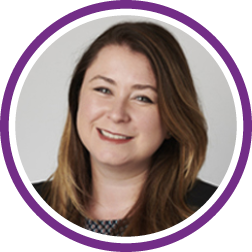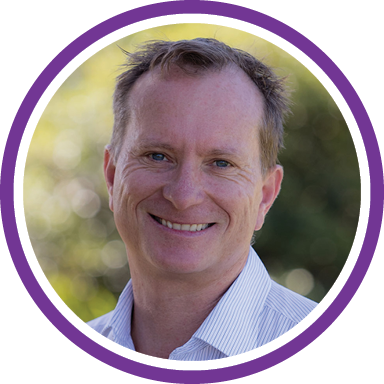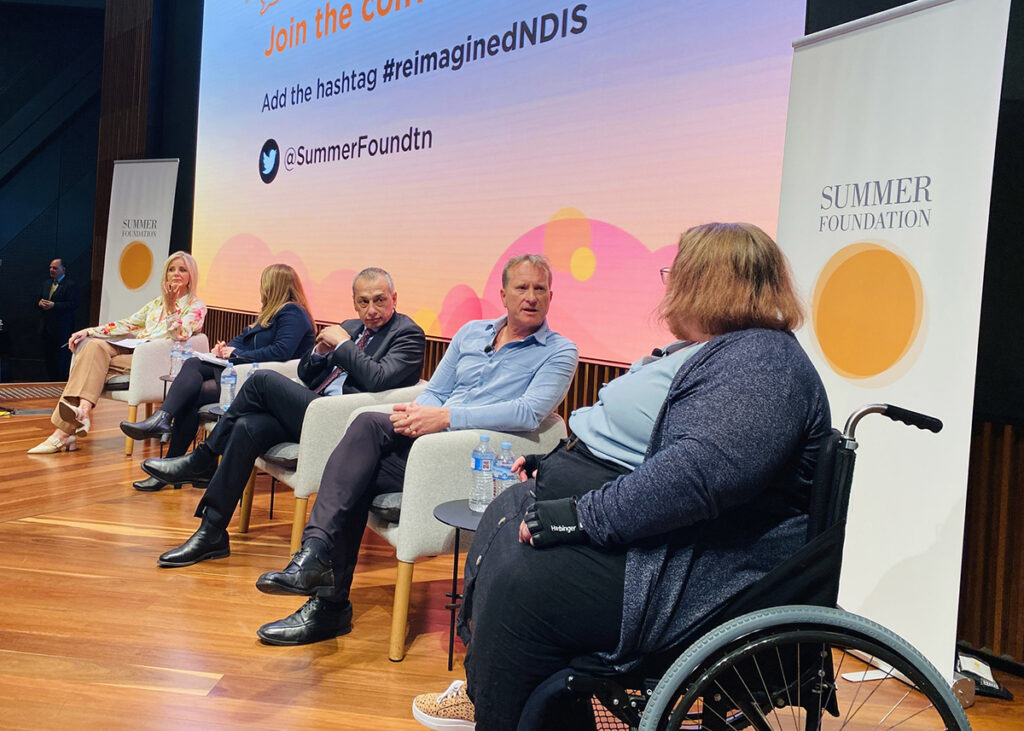In February, the Disability Reform Ministerial Council acknowledged the failure to achieve the first 2 targets in the Federal Government’s Younger People in Residential Aged Care strategy.
Government YPIRAC targets not achieved
The South Australian Government recently announced that they will meet their obligations under the National Construction Code.
Our UpSkill initiative, offering NDIS training and resources for professionals assisting people with complex support needs, continues to expand.
The Summer Foundation secured 2 significant research grants in February.
A La Trobe University/Summer Foundation team received an Australian Research Council (ARC) grant for a 3-year project investigating the lived experience of people with a disability moving into specialist housing.
On this episode of Reasonable and Necessary, Dr George speaks with NDIA General Manager Sam Bennett and NDIS guru Sam Paior about how to manage your NDIS funds efficiently, creatively and innovatively so you can get the best outcomes out of your plan. While we focus on self management, you don’t need to self manage to benefit from this episode. It will be relevant to you if you are plan managed and even if you are agency managed and want to have more control over your supports.
To learn more about self management you can visit:
https://www.ndis.gov.au/self-management
https://www.selfmanagerhub.org.au
You can download and listen to the audio version on SoundCloud, iTunes (Apple Podcasts) or Spotify.
Source: The Age – Henrietta Cook | Photo: Xavier Edwards and his father, Jase, in the Royal Children’s Hospital – Photographer: Wayne Taylor
Xavier Edwards has been stuck in hospital for 12 months and just wants to go home.
But while the quadriplegic teenager is ready to leave, a bureaucratic nightmare means there is no end in sight to his lengthy stay.
We first met Connor during the more than 2 years he waited to get the right SDA approval in his NDIS plan. Late last year Connor finally moved in to his own apartment.
Tell us about yourself
My name is Connor Brookhouse and I am 19 years old. My disability is called Friedreich’s Ataxia. I love animals and video games. I am now living independently in an apartment, but I was living at my mum’s house before I got SDA funding.
Source: The Australian – Sarah Ison
More than 10,000 younger people have died in residential aged care over the past decade, with new figures prompting calls for the government to implement ambitious timeframes to get people under 65 out of aged care and into suitable accommodation.
We first met Daniel almost a decade ago, when he lived in a nursing home. Last year, Daniel moved into his own SDA apartment.
Tell us about yourself
I’m 57 years old and have cerebral palsy. I’m a Richmond Tigers fan and in my earlier days was passionate about martial arts. I love spending time with my family, friends and, of course, my cats. I’m passionate about my advocacy work and hope it improves other people’s lives.
Source: The Conversation – Di Winkler
The National Disability Insurance Scheme (NDIS) was designed to be a market-based system that would shift power from government and providers to consumers.
The NDIS Quality and Safeguards Commission’s Own Motion Inquiry report demonstrates that for the most vulnerable NDIS participants, there is still a power imbalance, with providers and workers still in charge.
Last year we began working with Samar. Samar shares her experience of moving into SDA and explains why she wanted to share her story.
Tell us about yourself
I’m an independent woman, I have cerebral palsy. I live in an SDA apartment, which has been a real life changer for me. I am a disability support worker trainer and I share my lived experience with other projects as they come along. I like to support people with disabilities and hopefully my experience helps others.
VIDEO PODCAST: 15 December 2022
On this episode of Reasonable and Necessary, Australia’s leading podcast series on the NDIS, Dr George Taleporos is joined by the new CEO of the National Disability Insurance Agency Rebecca Falkingham about her key priorities, how she plans to rebuild trust and much more.
You can download and listen to the audio version on SoundCloud, iTunes (Apple Podcasts) or Spotify.
The Summer Foundation’s Annual Public Forum was held on November 25, 2022. For the first time since 2019, we were pleased to host an audience in person, as well as online. The hybrid event saw almost 600 people join us online and close to 150 in person at The Arena, NAB Docklands.
Watch highlights from the forum:
Our panel of experts, made up of policy makers, sector experts and people with lived experience of disability were hosted by Beverley O’Connor (ABC News 24), and discussed what a reimagined NDIS might look like.
Bram Heinrich-McPartlan and Tobias O’Hehir brought the voice of lived experience to the discussion, with valuable insights into their own experiences navigating the NDIS. Importantly, they both highlighted the life-changing supports that their NDIS funding provided, while also sharing how complex the NDIS is, and how difficult it was to access and understand.
Tobia’s noted that his work as a lawyer helped him to recognise what was needed to put together an application that ensured he would get the funding package he needed, bringing into sharp focus that most do not come to the NDIS with this level of expertise. “Immediately I knew this was an evidence-based process, straight away… I came to it with a law degree and comms degree, and all of my professional experience, and I was able to get the information that I required, I was able to get the evidence that I required.”
John Dardo, Deputy CEO Partners, Providers and Fraud Taskforce Group, represented the NDIA and he was joined by Alecia Rathbone from the Housing Hub and Paul Simmons from Ability SDA, who added to the discussion from the perspective of sector and housing professionals.
It was widely acknowledged throughout the discussion that the NDIS is a young organisation with an enormous task, and while it is not where it needs to be, the organisation is committed to getting better.
John Dardo explained that the NDIA is working on both system improvements and immediate interface improvements to make the NDIS better now, and into the future. “But we also have to look forward and go, what do we need to keep focussing on at every level, to improve and be better next year, and in 5 years, then in 10 years.”
Watch the full recording:
There were some fantastic suggestions for improvement from all our speakers. A key theme that emerged was improvements to workforce. For example, there needs to be more level 3 support coordinator funding, as well as funding for training for support coordinators so they can become the experts that they need to be. The implementation of NDIS in-reach roles within the hospital system was also needed so there are experts within the hospital system that can work with participants and support coordinators to get the best possible outcomes.
Suggestions for change within the NDIA included NDIS policy being separated from implementation, and a positive demand activation scheme, where the NDIA identifies participants who will likely be eligible for SDA. Paul Simmons explains, “the NDIA knows who is likely eligible for SDA, it wouldn’t be perfect, but they would cover it a lot better than the market would”.
The event concluded with a great sense of optimism for the future of the NDIS. For the full discussion – the range of barriers and possible improvements, watch a recording of the event above or download the transcript.
Speakers:
John Dardo – Acting Deputy CEO of the NDIA’s Partners, Providers and Fraud Taskforce group

John Dardo joined the NDIA on secondment in August 2022 as Deputy CEO of the newly formed Partners, Providers and Fraud Taskforce group. John is responsible for outward facing interactions with providers, partners in the community, the national contact centre and the recently formed cross-government Fraud Taskforce. John has a longstanding senior executive career in the public service, having previously worked at the Australian Taxation Office and Department of Education, Skills and Employment.
Alecia Rathbone – Chief Social Enterprise Officer, Housing Hub

Alecia Rathbone is the General Manager of Summer Foundation’s social enterprise the Housing Hub, that connects people with disability to appropriate housing. She is responsible for the development and growth of products and services of the social enterprise including the Housing Hub website, where people with disability can search for suitable housing by housing type or location, and the Tenancy Matching Service, which supports people with disability to apply for new property developments across Australia.
Bram Heinrich McPartlan – NDIS participant and SDA tenant

Bram lives with multiple disabilities in fully accessible specialist disability accommodation. Bram found accessing the NDIS a trial and it took multiple attempts to obtain the appropriate housing and supports in their plan. Bram now works casually, does disability advocacy and is grateful for the personal freedom and agency the NDIS has given them.
Paul Simmons – CEO, Ability SDA

Paul Simmons is a registered SDA provider that builds specialist disability accommodation. Together with his wife Angie, Paul founded Ability SDA in 2016 in direct response to the need for high quality SDA in NSW. Paul recognised an opportunity to support people with high physical needs by offering independent living solutions and a better quality of life. Today, Ability SDA has 45 accessible apartments with further developments in the pipeline. With a combination of industry experience in economics, finance, property, aged care and SDA, Paul is driven to build cost effective, beautiful, accessible spaces for vulnerable Australians.






UpSkill will continue to offer training and resources to support coordinators, allied health professionals and other sector professionals assisting people with complex support needs. Check out our upcoming courses for 2023.
As we wind down after an especially busy year the time is right to reflect on our work and achievements.
There has been significant change in the disability sector in 2022. A change of government, a greater focus on the NDIS than arguably ever before in the community and now the start of what feels like a new era for the NDIS with new leadership and a scheme review.
Source: The Australian – Sarah Ison
The government’s plan to clear hospital beds by getting National Disability Insurance Scheme participants discharged sooner is saving the states “literally millions of dollars every day”, and a “frank” conversation is needed over how they can do more to support young disabled Australians, NDIS Minister Bill Shorten says.
Source: The Canberra Times – Dan Jervis-Bardy
Aida Janssen has lived a tough life. She was 12 when a bomb blast in her native Lebanon left her paralysed, the shrapnel causing scars which are still visible.
At 29 she would get to live out a dream of moving to Australia, where she would settle in Canberra and start a family.
The Summer Foundation’s Annual Public Forum was held on November 25, 2022. For the first time since 2019, we were pleased to host an audience in person, as well as online. The hybrid event saw almost 600 join us online and close to 150 people at The Arena, NAB Docklands.
The Summer Foundation’s Down to 10 Days campaign is seeing significant progress in reducing the time NDIS participants are waiting for approval for the housing and support they are entitled to.
“We are seeing real change in NDIS participants getting access to the housing and support they need, when they need it,” said campaign director Tim Naughtin.
“We are hearing stories about people who have been waiting – in some cases for years – for approval from the NDIA, that are now receiving appropriate funding; and SDA providers who have had apartments sitting empty while participants await approval are now reporting the process is happening much faster.
“Recent data backs this up, with the latest NDIS quarterly report showing decisions are being made, and in shorter time frames.
“The impact of this is life-changing for NDIS participants and vital for the sustainability of the SDA market.”
In October NDIS Minister Bill Shorten joined the Summer Foundation for a tour around Guardian Living’s SDA apartments in the Melbourne suburb of Moonee Ponds. He met a resident in their apartment and saw another that has sat empty for 2 years while the person who is supposed to be living there has waited for the NDIS to approve their application.
Minister Shorten reiterated that clearing the backlog of participants disputing housing decisions and faster decision-making by the NDIA are key priorities for him.
We are also working directly with the NDIA on reducing the number of participants appealing their SDA decisions and on the design of the new NDIS Home and Living policy.
Our work is seeing us build support across the Federal Parliament, with independent MP Monique Ryan in November calling for a 10-day decision-making time frame to be legislated for NDIS participants needing housing.
In partnership with People With Disability Australia, the Summer Foundation conducted research into people’s experience of the NDIS. The research aimed to understand what works well in the NDIS, how it has made a difference to people’s lives and what they would change about the NDIS.
The Summer Foundation has identified the need to connect and build relationships with the residential aged care (RAC) sector as a way of working with providers to achieve the Federal Government’s Young People in Residential Aged Care (YPIRAC) strategy.
We are pleased to welcome Chief Operating Officer, Jess McKay, to the Summer Foundation. Jess is a CPA qualified accountant and has close to 10 years’ experience as a COO. She comes to us with experience in the technology sector, as well as the aged care and not-for-profit sector.
In recent months, the Summer Foundation has invited ministers and senators to visit new Specialist Disability Accommodation (SDA), to meet tenants and to see what innovative SDA housing looks like. Visits have been organised with the support of SDA providers.
Since the NDIS was created, the NDIA has released quarterly reports to disability ministers on key information, including statistics and trends, about participants, their NDIS plans and the provision of NDIS supports in each jurisdiction.

